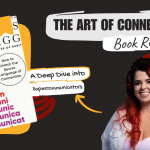Around this time every year, I start seeing articles and posts going out about “Planning for 2020” and all the worksheets you can use to get yourself set up for the next year.
Whether it’s the one Agent Inner Circle puts out every year to help track your marketing (watch for it next week!) or something you use for other tasks, you absolutely need to have those plans in place.
However, I noticed that every year I do something that isn’t included in most yearly planning guides. This is before I even start outlining what needs to happen in the next year. My strategy is to do a “look back” at the last 1 or 2 years and outline them for myself and my team before I jump into planning. It doesn’t have to take a lot of time, but it can help give you a great perspective on what’s happened in the recent past in your business.
These 4 steps can help you focus on the systems and practices you should keep using in 2020, and the ones that didn’t work that you should get rid of:
Step 1: Successes and Challenges
I start by setting up a chart to outline any major successes or challenges my team has faced. Just to be clear, I always use the word “challenge” instead of “failure.” Challenges are something for you to overcome, while failure feels a lot more final.
To outline everything, I normally look back through my calendar, week by week, and jot down quick notes for any successes or challenges I come across. Sometimes going through my calendar doesn’t catch everything, so I take a quick scroll through my sent email messages. Just looking through subject lines is enough of a reminder to catch anything I’ve missed in my calendar.
As humans, we tend to remember the negatives instead of ‘wins’ or positives, especially after long periods of time have passed. By outlining the year’s major successes and challenges, I’m able to get a great understanding of what the last year really looked like.
Most of the time we end up saying “Wow, we have a lot to be proud about this last year!” when we pay closer attention to our day-to-day activities.
Step 2: By The Numbers
After I’ve outlined our big successes and challenges I take a look at the numbers, or as some like to call it “the metrics.” The numbers that I’m looking for change slightly every year especially as goals change, but there are some big ones that are consistent that you should look for:
- Revenue: How much money did we take in?
- Expenses: How much money did we spend to make that revenue?
- Sphere of Influence/Contact List (Growth): How many people are in our sphere of influence and how many people did that number grow by this year?
- What lead generation tactics worked when prospecting for leads? What helped our sphere grow the most?
- And, what system or activity helped generate the BEST leads (ones that converted)?
- What Follow-Up Tactics Worked: What ways have we reached out and followed up with leads (text, emails, direct mail, social media) – and how much time elapsed between ‘touches’ or contact?
- How long are our follow-up sequences, and how long does it take to convert a lead? For example: did we send one response to a lead requesting information, or did we have a sequence in place that followed up for months (what SHOULD happen with leads).
- What is the strategy converting the most leads?
By the way, we’ve got a great previous article on best practices for lead follow-up. Click here to read it!
Experts will tell you that you should only do things you can track. I don’t take quite such a hard stance. Don’t get me wrong, I love looking at the numbers but I don’t think the numbers alone always give the full picture.
By using a combination of the metrics and the intangible successes and challenges the team has faced, I feel like I’m able to get a full picture of the last year.
Step 3: Compare What Happened To The Goals You Had Set
Once I have this full picture, I use it to compare what we accomplished with what we had planned for the year. Some years they’re quite close to one another, while other years we realized we needed to pivot away from our original plan.
The goal for this step is to figure out how and why your outcome was different from your plan. Don’t worry, your goal and outcome shouldn’t be identical. It’s a lot more important to figure out why they’re different so you can make better decisions in the future.
Step 4: Highlight What Worked
Last, but certainly not least, use all the work you’ve already done to create a short list of the things that worked. These are the things you want to make sure you carry into next year. In the broad scheme, creating this list takes a short amount of time but is critical to your business.
Every year agents continue using strategies that flat out don’t work, or worse yet, somehow forget about tactics that were working in lieu of the “shiny penny.” This short, simple list of the things that work will make sure you only carry forward the best practices in your business.
Facebook LIVE Interview
I know this “look back” has become critical to my planning and, coincidentally, I found out that a good friend and Rock-Star Realtor Gary Rogers does the same thing in his business.
Next week we have a special treat for you – I will be spotlighting Gary to discuss how he uses a “look back” each year to take his business to the next level.
I know that once Gary and I started following these steps, we’ve both never looked back. Join us next week for all of our tips and tricks to get yourself ready for your yearly planning summit! We’ll be emailing Agent Inner Circle members with more details, so stay tuned.








Leave a Reply